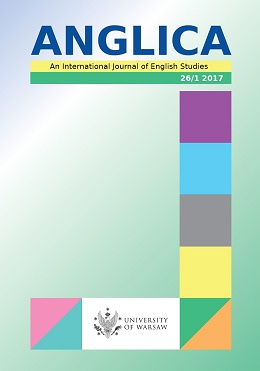Nicholas Urfe’s Masculine Trap or the Construction of Manhood, its Ambivalences and Limitations in John Fowles’s The Magus
Nicholas Urfe’s Masculine Trap or the Construction of Manhood, its Ambivalences and Limitations in John Fowles’s The Magus
Author(s): Irina StroutSubject(s): Theoretical Linguistics, Applied Linguistics, Studies of Literature
Published by: Instytut Anglistyki Uniwersytetu Warszawskiego
Keywords: John Fowles; Magus;Masculinities;
Summary/Abstract: Western society and its fiction faces the overwhelming problem of masculinity and its modeling. The era of war, capitalism, the challenges of feminism affect the ideology within which men are constructed both as individuals and as a social group. John Fowles’s fiction tackles the crucial issue of male power and control as masculinity is put to test and trial in his 1965 novel The Magus. The definition of manhood, male virility and social respectability of the period shape the 20th century male characters in Fowles’s fiction. This paper aims to explore how John Fowles investigates the role of masculinity and power myths on the personal level of relationship and a wider scale of war and capitalism in The Magus. Notions of masculinity off er the protagonist, Nicholas Urfe, a sense of a superiority and power over women in the course of the novel. Among the goals of the project is to examine the mythical journey of Nicholas, which becomes a testing ground of his masculinity and maturity, as well his trial and ‘disintoxication,’ which is intended to help him to reevaluate his life and his relationships with women. One of the issues posed is whether Nicholas Urfe is reborn as a new man at the end of his search for redemption or if he remains the same egotistic, ‘lone wolf’ as he appears in the beginning of the novel.
Journal: ANGLICA - An International Journal of English Studies
- Issue Year: 26/2017
- Issue No: 1
- Page Range: 73-86
- Page Count: 14
- Language: English

